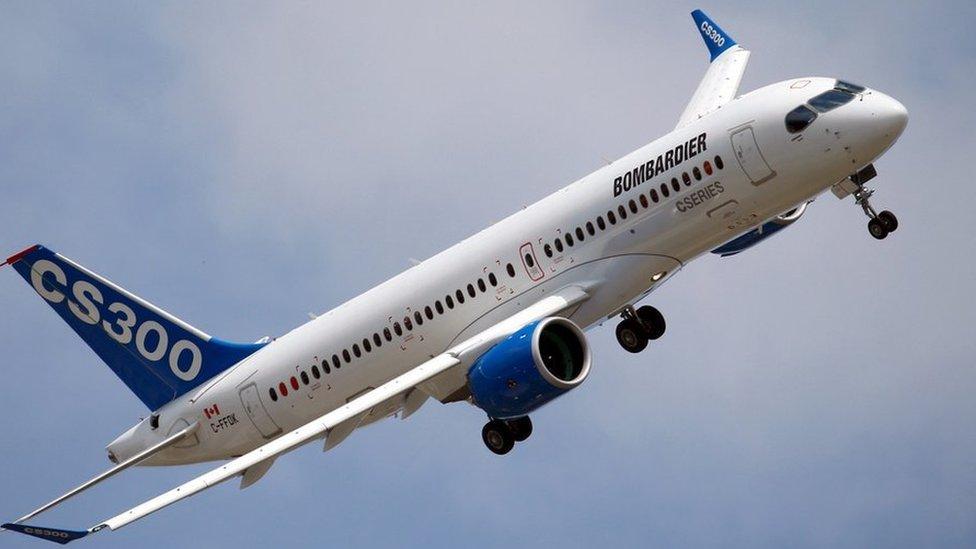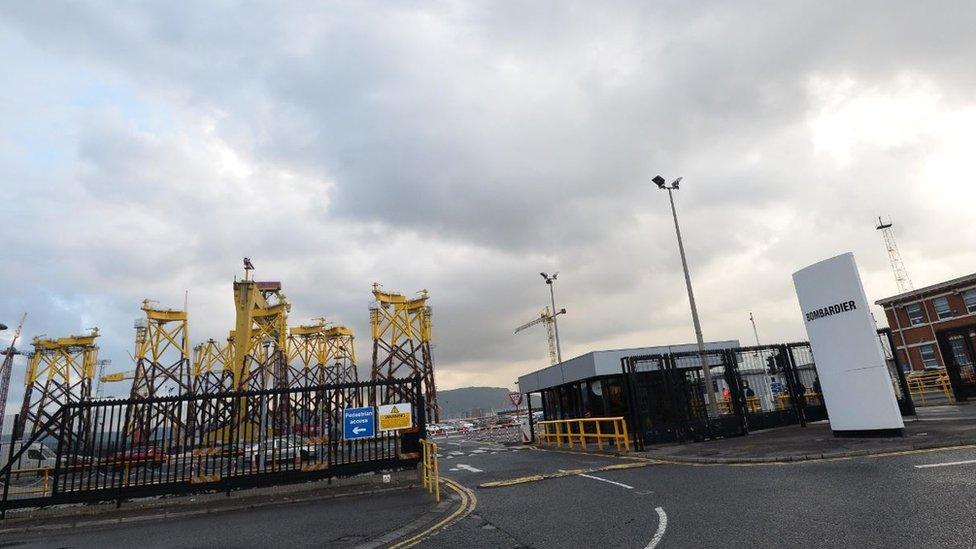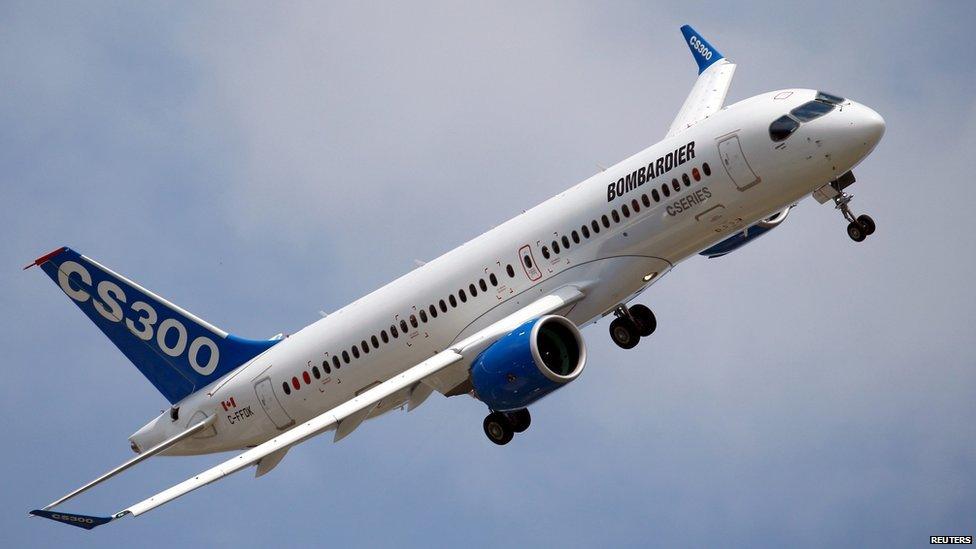Bombardier: The future of aerospace in Northern Ireland
- Published

Bombardier has announced 600 job losses at its Northern Ireland operations
Three weeks ago a fire broke out at Bombardier's main factory in Belfast.
It was quickly brought under control with no injuries and little damage.
But an aircraft factory going up in flames feels like a metaphor for an entire industry.
Last week, Bombardier announced 600 job losses at its Northern Ireland operations.
It said the move was in response to "extraordinary industry interruptions and challenges" caused by the coronavirus pandemic.
Just days before Thompson Aero Seating, which makes seats for airlines like Qantas and Aer Lingus, said it would make up to 500 redundancies at its Portadown factories.
The job losses are not confined to Northern Ireland.
'Very different time'
Rolls Royce, the Derby-based aero engine manufacturer, is planning up to 6,000 job cuts in UK.
Spirit AeroSystems, which is in the process of buying Bombardier's Northern Ireland operations, has made a series of job cuts at its US operations including 900 temporary lay-offs last week.
The problem for aircraft manufacturers is simple - their customers, the airlines, are in a battle for survival and are in no position to spend money.
"This is a very different time than post 9/11 when changes could be made quickly to get people flying again," says Mark Huddleston, a Northern Ireland aerospace veteran.
"This is going to take much longer and confidence is going to be slower to come back.
"For the Northern Ireland industry we're probably looking at around a 25% reduction in both revenues and labour."
'Big primary producer'
That is a deeply worrying forecast for an industry that's worth about £2bn to the Northern Ireland economy.
"We know that every job in advanced manufacturing supports at least another two jobs elsewhere in the economy," says Stephen Kelly from Manufacturing NI.
"So when a big primary producer like Bombardier struggles the rest of the economy struggles."

Bombardier employs about 3,600 people across several factories in greater Belfast
The UK industry is pointing to the huge government support the French government is offering to its aerospace sector.
A €15bn (£13.5bn) package, although almost half of that is already accounted for as aid to the Air France airline.
"We're seeing the French, the German and the US governments stepping in and offering significant support to their aerospace and aviation industries," says Paul Everitt from industry body ADS.
"They're doing that because these industries will generate jobs and prosperity in the long term.
"If the UK doesn't respond the risk is that as growth returns the benefits will flow to those other countries and their companies and the UK will be fundamentally disadvantaged."
- Published5 June 2020
